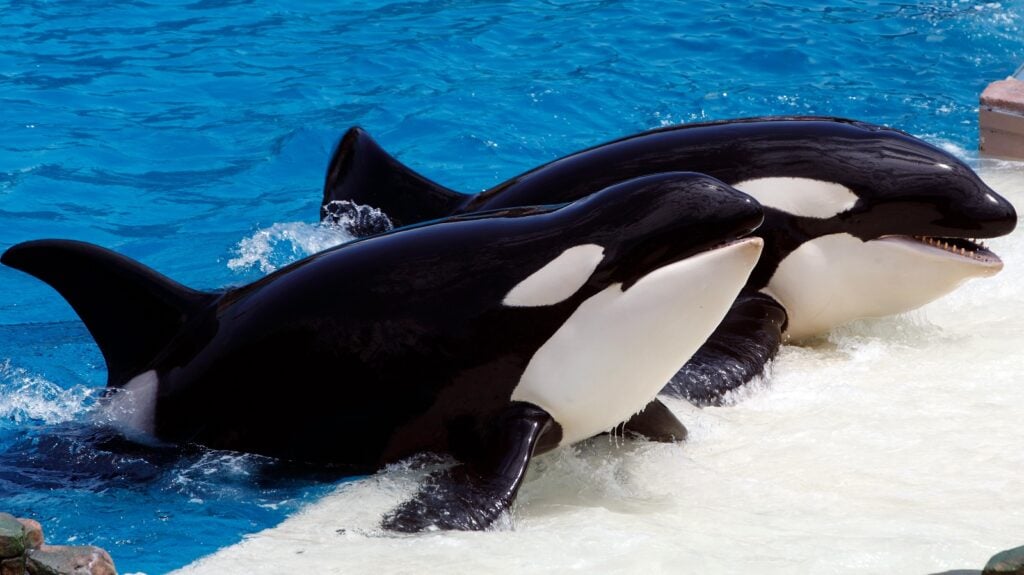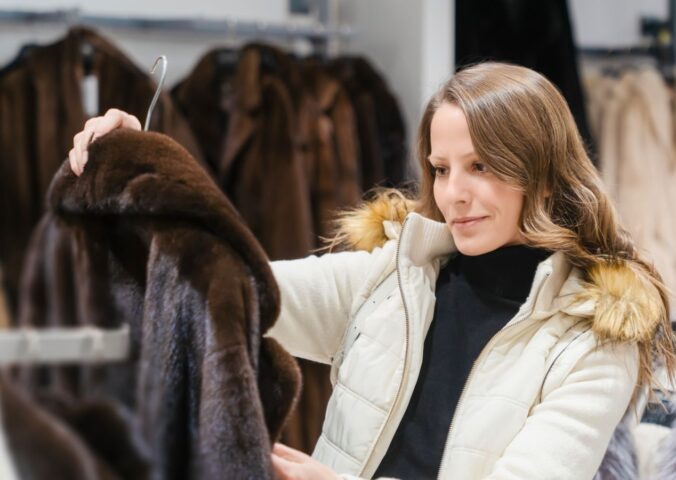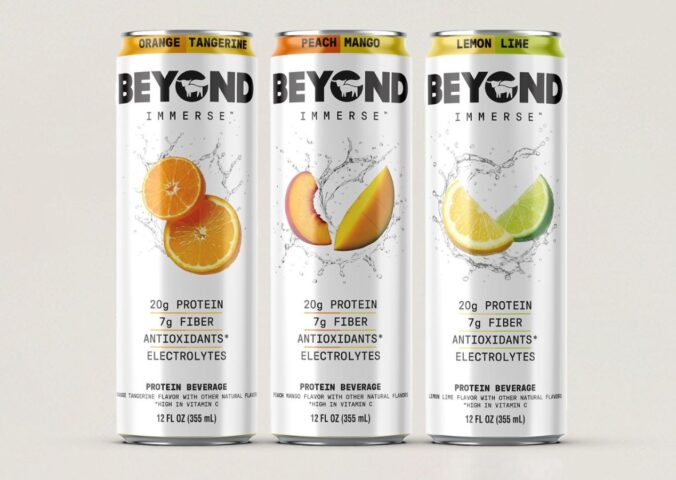PETA has requested that the San Diego District Attorney, Summer Stephen, investigates animal welfare concerns at SeaWorld.
In a letter, the animal rights organization has requested that Stephen investigate claims that the park is housing incompatible animals together. It asked that these claims be pursued to the fullest extent of the law, including filing charges for animal cruelty.
It comes after a park visitor sent PETA a video of multiple orcas seemingly attacking one another. Corky, the longest-held captive orca in the world, is believed to have come off worst, with a “large wound” on the right side of her body.
“She was unable to escape the aggression due to the crowded, small, cramped tanks in which SeaWorld confines orcas in knowing disregard of the risks to their welfare,” Jared Goodman, PETA’s general counsel for animal law, writes in the letter to Stephen.
He adds: “This incident confirms what cetacean experts have made clear for years: captivity is physically and psychologically devastating to the orcas confined at SeaWorld.”
He finished the letter by requesting a meeting with Stephen and urged her to “consult with independent orca experts” in a thorough SeaWorld investigation.
The US Animal Welfare Act should protect animals from being housed with others that might affect their well-being. It states that the same species of animals should not be brought together if there is a risk of them clashing.
PETA released reports stating that eyewitnesses saw blood in the water, and could identify “bites and other injuries” on the orca that was being attacked.
PETA puts SeaWorld San Diego on blast
Prior to petitioning Stephen, PETA also wrote a letter about the incident to the United States Department of Agriculture (USDA) and urged it to investigate.
In its letter, titled “Urgent Request to Investigate Apparent Animal Welfare Act Violations at SeaWorld,” PETA highlighted its main concerns.
“Bullying among orcas is usually difficult to resolve once it starts and is often the result of stress due to confinement in crowded, cramped tanks,” the letter stated.
It continued: “Because of this, separation of this orca in an adequately sized tank is necessary for the mental and physical well-being of this animal.”
Videos and photos were submitted with the document. They identified wounds and drew attention to what the organization deems unnatural behavior for orcas.
In the wild, it is considered rare for orcas to attack one another, but if conflict does occur, they are able to flee to avoid serious injury. The same is not possible for captive marine mammals.
“PETA is calling on the USDA to investigate SeaWorld for holding animals in conditions so stressful they would lead to horrific attacks and reminds families to stay away from any park that imprisons orcas or other animals,” PETA’s executive vice president Tracy Reiman said in a statement.
The death of Nakai
The day before the tank altercation was captured on video, a 20-year-old orca named Nakai died at SeaWorld San Diego. He was previously attacked by tankmates while he was being kept in a concrete enclosure in 2012. At that time, he sustained puncture wounds and a jaw injury.
Born at the park, Nakai died following treatment for an infection. His death brings the number of orcas at the park down to eight. It was also the second passing within a year. Amaya, a six-year-old female, died from a lung condition in August 2021.
There is no option for the park to breed any new animals in captivity, following SeaWorld’s 2016 breeding ban. The move came about in response to shifting public opinion surrounding orca captivity.
The 2013 documentary Blackfish was widely credited with changing park-goers perceptions, and in turn, SeaWorld’s fortunes.
SeaWorld changes tack
In addition to ending its orca breeding program, SeaWorld called time on its dolphin “surfing” stunts in 2020. Trainers riding on dolphins’ snouts were also slated to be phased out.
The u-turn came after multiple holiday operators chose to drop SeaWorld from their rosters of trusted experience partners. Virgin Holidays, United Airlines, and Thomas Cook all cut ties, amongst others.
Each cited animal welfare concerns as its reason for ending the relationship.
This article was originally published on August 9 2022. It was updated on August 31 2022 to include new developments.






